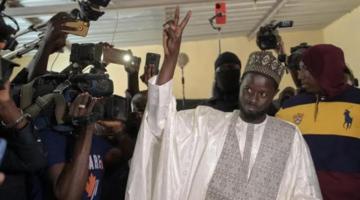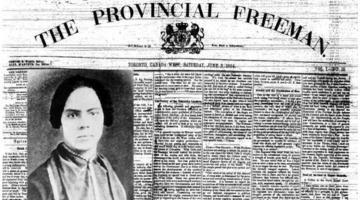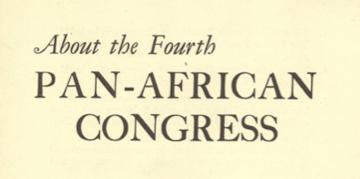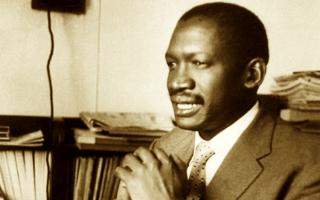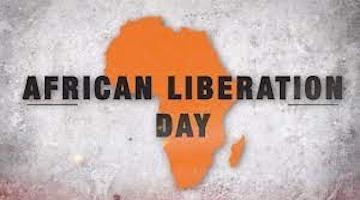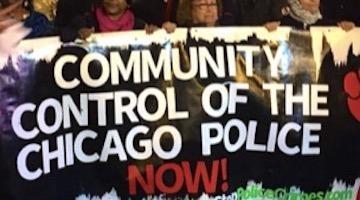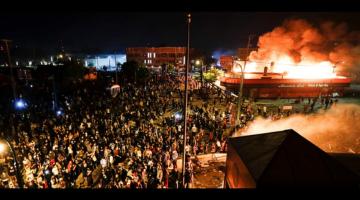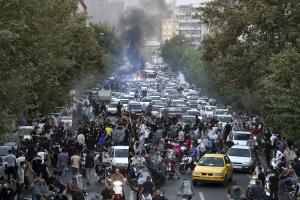LACK CITIZENSHIP FORUM: The Roots of Xenophobic Violence in South Africa—A Pan African Response
South Africa must dismantle and transcend the colonial nation-state through creation of a Pan-African federation that stretches across the Southern African sub-continent.
“Madalitso Zililo Phiri traces the contemporary rise of xenophobia in South Africa to the colonial and imperial formation of the Union of South Africa.”
For the fourth post in the Black Citizenship Forum, we feature an essay from Dr. Madalitso Phiri, a sociologist and post-doctoral research fellow at the Johannesburg Institute for Advanced Studies at the University of Johannesburg. He is currently working on a comparative study of the political economy of social policy in South Africa and Brazil. For The Black Agenda Review, Phiri traces the contemporary rise of xenophobia in South Africa to the colonial and imperial formation of the Union of South Africa, and two pieces of legislation in particular: The Land Act and the Immigration Act, both passed in 1913. He makes a case for Pan-African federation as a resolution to the violence and exclusion constituting both the South African state and nationalist discourses on immigration.
The Roots of Xenophobic Violence in South Africa—A Pan African Response
Madalitso Zililo Phiri:
In South Africa, the Covid-19 pandemic has served to reify the manifold inequalities emanating from the country’s histories of colonial domination, Black genocide, and anti-black racism. But South Africa’s current social crisis is further exacerbated by internal perceptions that it has been inundated and infested with illegal immigrants who have eroded the country’s social fiber. It is a perspective that oftentimes leads to physical violence. Trucks driven by foreign nationals have been burned and there have been arrests and extra-judicial killings of ‘illegal’ domestic workers, gardeners, and small shopkeepers from countries including Zimbabwe, Lesotho, Malawi, Mozambique, Tanzania, and Somalia. While such violence threatens to further polarize working-class communities, it also highlights the key existential and political problem of twenty-first century South Africa: that of the nature of the relationship between South African citizens, the belonging and inclusion of foreign nationals, and the post-apartheid polity. As a Malawian national with a Pan-African orientation living in South Africa, recent anti-immigrant actions have, for me, pointed to a need to understand the origins of the formation of the colonial nation-state, with the aim of dismantling it, as a means towards forging a more expansive and inclusive idea of citizenship.
“South Africa’s current social crisis is further exacerbated by internal perceptions that it has been inundated and infested with illegal immigrants.”
Several dates are crucial to understanding how aspects of colonialism and Black resistance were at odds in shaping the trajectory of South Africa. These dates are 1910, 1912, and 1913. The year 1910 saw the formation of the Union of South Africa, whose sole aim was to unite the antagonistic British and Dutch (Boer) territories to exclude Black Africans from participating in this newly formed state under the guise of the mission civilisatrice. By contrast, 1912 saw the birth of the African National Congress (ANC) whose sole aim was to resist the exclusivist, colonial, and imperial idea that South Africa would be governed by privileged White citizens. If these two dates bring to the fore the origins of state bifurcated by White supremacy and resistance to it, then 1913 further consolidated ideas of difference and White economic privilege through two pieces of legislation: the Land Act and the Immigration Act.
The Land Act of 1913 instrumentalized the dispossession and economic destitution of Black Africans. In the same year, on May 8, 1913 the colonial parliament passed legislation that banned the recruitment of migrant workers from areas north of latitude 22 degrees which included British governed territories like Southern Rhodesia (Zimbabwe), Nyasaland (Malawi) and the Portuguese colony of Mozambique.
“The sole aim was to unite the antagonistic British and Dutch (Boer) territories to exclude Black Africans from participating in this newly formed state.”
The Immigration Act of 1913 has received less attention than the Land Act because contemporary contestations on redistributive politics in South African have focused on expropriation of land without compensation. However, both land dispossession and exclusive migration policies were produced under the epoch of a violent colonial modernity, and their consolidation in the colonial era were in the service of British imperialism. The Immigration Act of 1913, I argue, with its ban on the “tropical native,” was a progenitor of contemporary violence toward African nationals in South Africa. Banning the tropical native served to cement the ideas of exclusive citizenship that has shaped South Africa’s post-apartheid migration policies. It is no coincidence that the colonial regime fused land dispossession and banned the “tropical native” in the same year.
That violence, which has been central to contemporary state making in South Africa, has been extensively documented, especially through the construction of ‘Nativism’ as a theory. Mahmood Mamdani distills ideas of White supremacy and segregation that are foundational to institutional state making by engaging with Jan Smuts’ policy of Nativism. Smuts suggested, “The British Empire does not stand for the assimilation of its peoples into a common type, it does not stand for standardization, but for the fullest freest development of its peoples along their own specific lines.” The mythical racial foundations of inclusion and exclusion in this newly formed union had been drawn. As Frantz Fanon conveys, colonial modernity has been adept at creating two centers: the universal “Man” and the bastardized “Other.” By this logic, the bastardized “Other” is perpetually condemned into the “zone of non-being”. More recently, Mamdani has argued that the global project of carving out the world into a European image was first experimented in Europe and the Americas.
“Colonial modernity has been adept at creating two centers: the universal ‘Man’ and the bastardized ‘Other.’”
Similarly, the modern South African state was founded on the premises of ethnic cleansing and perpetual servitude of the “tropical Native” and the “South African Native.” Both are produced and reproduced to serve imperial labor demands in an economy that excludes them. South Africa’s ban on migrant workers from its northern neighbors created an environment for illegal migration to thrive; thus, we can better understand the phenomenon of poverty, unemployment, low wages, wars, and other factors that compel people to move from one country to another. This challenges current narrow nationalist populism that is ubiquitous across Western countries and several African countries. Rather, the existence of a legal prohibition of any human activity almost always creates a field of illegal practices.
South Africa recently passed a new law in response to growing concerns in the country about its ‘porous’ borders. This became more topical when a Malawian who was living in South Africa and purporting to be a Christian prophet clandestinely escaped the country while facing charges of money laundering and racketeering, much to the dismay and embarrassment of South African authorities. Talk radio was filled with racist and xenophobic rhetoric that finds frequent expression in phrases like “we in South Africa” and “those people from Africa.” Figures on illegal immigration tend to be exaggerated. According to 2011 figures from Statistics South Africa, legal migrants were about 4.2% of the total population, or about 2.1 million people. Over 75% come from across the African continent, with the majority (68%) from within the Southern African Development Community (SADC) region. Over 45% of those from the SADC region were Zimbabweans.
“South Africa’s ban on migrant workers from its northern neighbors created an environment for illegal migration to thrive.”
In contrast to the current discourse about legal and illegal immigration, radical Pan-Africanists aimed to unmake the racial hierarchies that have been solidified by European colonial modernity. It is common for people to superficially invoke Nkrumah’s ‘Africa Must Unite’ thesis by referring to ethnic and linguistic homogeneities across the Southern Africa sub-region and using tropes like “we are all the same” and “we should just unite.” The nation-state, however, continues to lure us into its symbols of belonging and exclusion, including sovereignty, currencies, national anthems, cuisine, linguistic identity, religiosity, music, art, sport and complex collective histories that define what and who we are.
Fanon’s admonition in The Wretched of the Earth helps us understand the contemporary trap: “[S]o comrades,” he averred, “let us not pay tribute to Europe by creating states, institutions and societies which draw their inspiration from her.” South Africa’s path toward the transcendence of a violent, exclusionary national state is the creation of a Pan-African federation that stretches across the Southern African sub-continent. This redivision would not be predicated on the Southern Africa Development Community, which retains neocolonial market imperatives. The Pan-African federation might geographically redraw colonial constructed borders and identities on three geographical fronts: South Africa- Namibia- Angola, South Africa- Lesotho- Swaziland- Botswana, and South Africa- Zimbabwe- Mozambique- Malawi- Zambia. Adom Getachew reconstructs this model in her discussion of Kwame Nkrumah’s and Eric Williams’ vision of postcolonial federation. For them, regional federations would overcome the postcolonial predicament by creating larger, more diverse domestic markets, organizing collective development plans, ensuring regional redistribution, and providing for regional security. Such a federation would help to overcome the current postcolonial predicament because, as Ndlovu-Gatsheni and Mhlanga suggest, “borders as political and social creations rather than natural phenomena, must be open to negotiation, re-construction, re-drawing, contestations, acceptances and total rejections”. This is, in part, the promise of Pan-Africanism.
This column was created by The Black Agenda Review team.
COMMENTS?
Please join the conversation on Black Agenda Report's Facebook page at http://facebook.com/blackagendareport
Or, you can comment by emailing us at comments@blackagendareport.com


